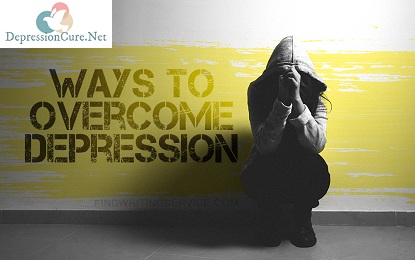Introduction
What is considered sleep deprivation? Sleep deprivation or lack of sleep is a condition in which you are not able to get enough sleep. It can either be a long-standing problem, or it can also be a sudden problem.
If you do not sleep properly for a long time, you may have issues like fatigue, daytime sleepiness, restlessness as well as sudden high weight loss or weight gain.
This lack of sleep severely affects many cognitive functions like concentration, concentration along with the brain. However, in some cases, lack of sleep may increase energy and alertness and improve mood. It is also used to treat depression.
What is a sleep deprivation or lack of sleep?
Sleep deprivation is a common problem in modern society, which affects everyone at some point in their lives.
Sleep deprivation occurs when a person is not able to get enough sleep as per his/ her physical requirement. Some older people are more resistant to the effects of sleep deprivation, while others, especially children and youth, are more susceptible.
Lack of sleep can lead to excessive sleepiness during the day, emotional difficulties, poor job performance, obesity and loss of quality of life.
Click Here To Read: Sleeping Disorders Reasons and Solutions
Symptoms of Sleep Deprivation
What are the Symptoms of Sleep Deprivation?
The main symptom of Sleep deprivation is a continuous sleep/ excessive sleepiness during the day, but there may be other symptoms as well.
These symptoms are as follows:
- Irritability
- The sadness
- Difficulty learning new concepts
- Forgetfulness
- Inability to concentrate
- lack of motivation
- yawning
- Hunger and desire to eat carbohydrates
- The constant change in mood
- Fatigue
- Restlessness
- Decreased libido
Sleep Deprivation Causes
Why is there a lack of sleep?
The most common reasons for the lack of sleep are the following:
Voluntary Behavior
This usually happens when individuals are unaware that their body needs more sleep, and they do not sleep. Using stimulants can also affect sleep. For example, some people consume alcohol or caffeine at bedtime, which can increase the difficulty for sleep.
Work or Study
Some specific work environments can disrupt the body’s natural sleep and wake cycles and cause sleep deprivation. In particular, people working in shifts and those who frequently travel by air often do not get enough sleep.
Children and adolescents requires more sleep than adults, but it can be difficult to get enough sleep due to the office and school tasks.?
Environment and Sleeping Habits
In some cases, sleep deprivation may occur as a result of stimuli in the areas around the person’s sleeping. This includes high temperatures, noisy surroundings, or snoring companions. Additionally, sleep habits can also affect sleep quality and quantity.
Insomnia (Sleepiness)
Insomnia is a problem in which there is difficulty sleeping at night, which affects one-third of the adult population and is related to lack of sleep.
Click Here To Read: 5 Reasons why sleeping Too Much Can Be Dangerous
Sleep Apnea
Sleep apnea is a health problem in which breathing stops at bedtime, causing less air in the lungs. In this, the person usually wakes up repeatedly due to insufficient oxygen. Subsequently, it is normal to sleep during the day.
Short Term Illness
Short-term illnesses such as colds, flu (influenza) or tonsils (tonsillitis) can cause difficulty in breathing while sleeping, which can cause a person to stay awake all night, leading to lack of sleep.
What causes sleep deprivation?
Following are the risk factors of sleep deprivation
Lifestyle
Lifestyle is a major cause of lack of sleep. Unbalanced diet and excessive alcohol or caffeine intake at bedtime are common causes of lack of sleep. People may lack normal sleep by working during the night. By making small changes in lifestyle, the possibilities can be cured.
Age
Age is also a risk factor for lack of sleep. The elderly sleep less than the younger ones, so they get much less sleep than the younger ones, and they face problems of sleeplessness. Health problems affecting elderly individuals, such as sugar, high BP and gastroesophageal reflux, can affect sleep.
Medications
Some medications can change your body’s normal sleep rhythm, which can lead to lack of sleep. Always tell your doctor if you are suffering from sleep disorders especially if you are taking a new medicine or increasing the amount of your current medication.
Medical Problems
Some medical issues can affect your mental and physical conditions, which can lead to lack of sleep. For example, if you have late night breathing due to asthma, it affects the patient’s sleeping order.
Likewise, depression and stress arising after an accident also do not let people sleep comfortably. People with mental disorders such as having nightmares in sleepy nightmare even start to struggle with the problem of sleeplessness.
Prevention of Sleep Deprivation
How is sleep deprivation prevented?
Lack of the sleep can lead to severe accidents. Also, the performance of the victim in the job or school can be poor. This can reduce the quality of life of a person.
Lack of sleep impedes the brain’s ability to balance emotions and thinking, reduces the body’s natural defenses and increases the likelihood of developing medical problems.
However, sometimes, a lack of sleep is not a serious problem, but an excessive lack of sleep can cause problems.
There is no option to avoid sleep deprivation. Certain precautions should be taken to prevent lack of sleep in all ages and efforts should be made to get adequate sleep.
Click Here To Read: 15 Insomnia Facts
Diagnosis of Sleep Deprivation
How is sleep deprivation tested/ diagnosed?
In order to solve the problem of sleep, it is most important to understand the order of sleep and sleeplessness. The first step to identify this sequence is to keep a written history of sleep.
Write on the basis of each day how many hours you sleep, how often you wake up at night, how you feel after waking up and how you feel about lack of sleep or sufficiency during the day.
If you have a room mate or partner, ask them about your snoring, gasps or twitching in your sleep, as doctors can also ask about this. When you have this information, you will be able to share it with your doctor easily, and this will help the doctor to diagnose your problem.
Sleep specialists can identify a pattern of your sleep or study sleep using a polysomnogram. This test is done in the sleep laboratory.
Electrodes are placed at various places on your body, including the skull and face. A person suffering from sleep deprivation is put to sleep in a slip clinic overnight and this monitor measures breathing, blood, heart rate and rhythm, muscle activity, and brain and eye movements during sleep.
People who deliberately sleep very little are diagnosed simply by explaining that you do not get enough sleep and need to be changed.
Sleep Deprivation Treatment
How is Sleep Deprivation?
Treatment of the Sleep deprivation can vary depending on their type and underlying causes. However, this usually includes medical treatment and lifestyle changes.
Medical Treatment
Following medical treatments can be done for lack of sleep:
- Sleeping pills
- Melatonin supplements.
- Dental guard for people with teeth and kit kite diseases.
- Allergy or cold medicine.
- Medications for any underlying health problems.
- Lifestyle changes
- Lifestyle changes can be significantly improves the quality of your sleep, especially when they are done with medical treatment. It includes the following –
- Consuming vegetables and fish in the diet and reducing sugar intake.
- Eating a low carbohydrate meal before bedtime.
- Limiting caffeine intake, especially in the afternoon or evening.
- Reducing tobacco and alcohol use.
- Reducing stress and anxiety by exercising.
- Making and following the rules of sleep
- Drink less water before bedtime.
Sleep and wake-up at the same time daily can also improve your sleep quality significantly. You may get enough sleep during the weekend, but this will also spoil your order, and you will have problems sleeping and waking up at the right time throughout the week (during the rest of the workday).
Click Here To Read: Sleep Disorders – Symptoms, Types and Home Remedies
Sleep Deprivation Risks & Complications
What are the problems of Sleep Deprivation?
Sleep deprivation affects the part of the brain that controls rationality. This is called the preferential cortex. Along with this, there is a side effect on the controlling part of emotionality. Due to all these reasons, the victim is unable to control her emotions and becomes exceptionally moody.
Sleep also contributes to preparing the mind to learn something. When you do not sleep properly, the brain is not able to support concentrating and learning something new.
When we do not sleep all night or reduce our sleeping hours significantly, the speed and quality of hormones responsible for growth and digestion are affected.
At the same time, many chemicals that give rise to stress increase in the body, such as norepinephrine and cortisol. Stress hormones that affect the immune system.
Research has shown that when full adults and children sleep less, their weight starts increasing rapidly. Significantly, about one hour less sleep increases body weight by 0.35 kg. This leads to many problems such as extreme stress, diabetes, obesity, heart attacks and strokes.
Following are the problems caused by sleep deprivation:
- Abnormal feelings.
- Difficulty paying attention and creating new memories.
- Less tendency to think positively.
- Poor mood and lack of desire to solve problems.
- Stretch of superstition and magic thinking.
- Intolerance and less sympathy for others.
- Impairment of impulse control.
- Increased risk of accidents.
Sleeping and waking at the same particular time every day can also improve your sleep quality significantly. You may get enough sleep during the weekend, but this will also spoil your order, and you will have problems sleeping and waking up at the right time throughout the week (during the rest of the workday).
Click Here to Read:- 60 Interesting Depression Facts
People who sleep very rarely have poor performance in their work, as well as do not have a good relationship with colleagues. Apart from this, there are many problems, such as low lifestyle, low self-esteem, feeling weak.
Sometimes all these problems are not even felt by excessive use of caffeine. Sleeping less also causes the problem of depression, stress and anxiety. So, improve your sleep to stay away from other diseases.
Note: Depression Cure does not provide any type of medical advice, diagnosis, or treatment.







